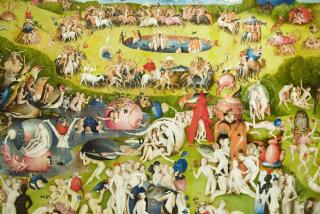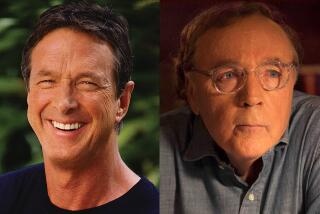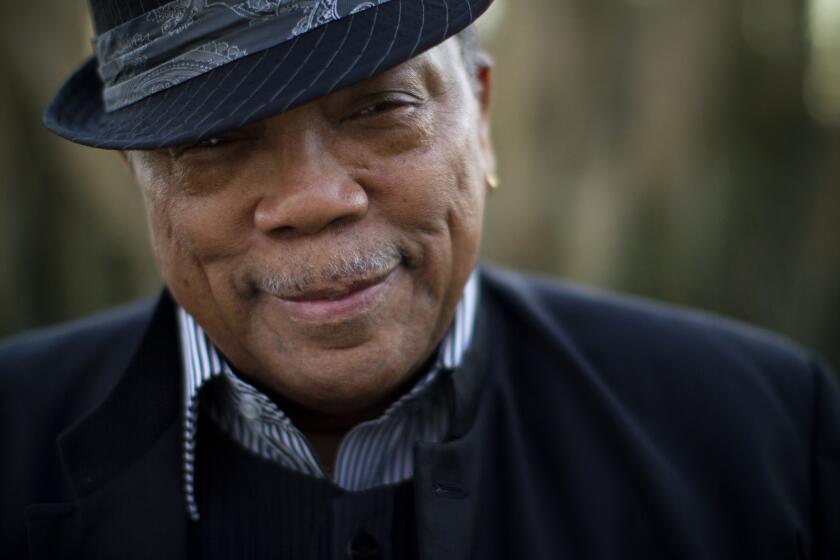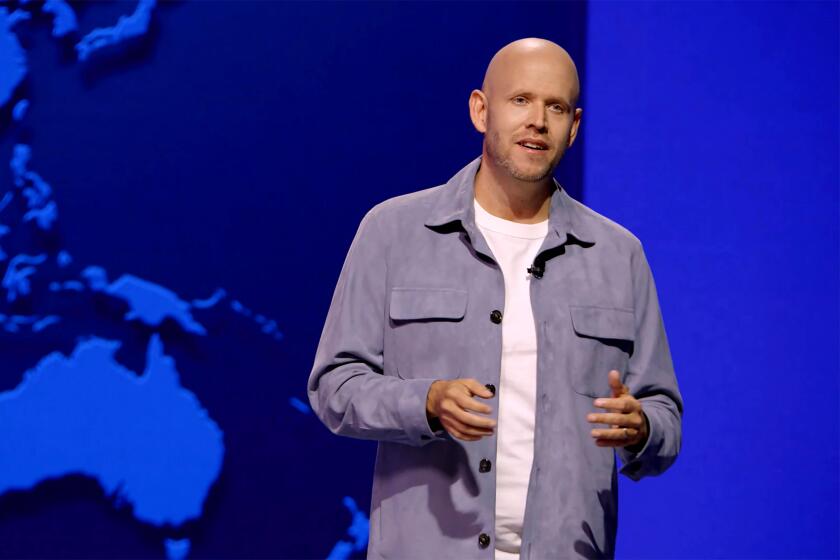‘Ablutions’ by Patrick deWitt
Ablutions
Notes for a Novel
Patrick deWitt
Houghton Mifflin Harcourt: 164 pp., $23
You are rail thin, 32 years old and super white. You have little ambition beyond going to work at a Hollywood bar. You drink too much, you drive under the influence in a “magical” 1971 Ford LTD and you pop aspirins as if they’re breath mints. There’s no avoiding each morning’s hangover or the strained looks from your wife. No dodging the relentless lull of routine.
Patrick deWitt’s first novel, “Ablutions,” is told in the second person -- fitting, given that DeWitt himself spent six years bartending.
Subtitled “Notes for a Novel,” it’s not a weepy personal account of alcoholism, but it certainly mines the details of the author’s life.
The book is a series of connected vignettes that takes us through a bartender’s odyssey of evenings and mornings after. There’s the bar: a dank, gleaming anyplace that “resembles a sunken luxury liner of the early 1900s, mahogany and brass, black burgundy leather coated in dust and ash.” Equally high and low, it’s the kind of establishment that has changed hands many times but still gets going on the weekends.
The money’s good and the regulars are the protagonist’s companions, whose lot it is to drink what he pours. They hover and groan and scheme. They have sex in the bathrooms and they have sex in the supply room. They get into fights and break each other’s noses.
Curtis, who gets his drinks on the house, has lost his job and sleeps in the closet of an empty apartment. A former child actor is known to weep openly, reciting lines from his own films. Simon, modeling contest winner, is now the fortysomething manager of the bar. Then, of course, there is the satellite crew of crack addicts and misfits who orbit the establishment. Available women are plentiful, but their availability is fleeting.
DeWitt’s narrator enjoys goading his newfound friends with free drinks and takes a malicious pleasure in creating a Bukowskian mise-en-scène. But he’s not immune to the stuff he’s pouring.
Soon enough, the whiskeys and pills start to catch up with him. He returns home one night to find his wife gone, “the closets and bathroom cupboards bare. On the pillow a note.”
“Ablutions” might be fascinating for the uninitiated, but it’s less so for anyone who has spent any sustained time trying to forget about last call. The sudden enthusiasms and bone-crushing hangovers: It’s a well-worn path.
Nevertheless, DeWitt’s writing is sharp and bitter and funny, especially in the second half of the book, when his bartender hero heads east into Arizona, encountering polygamists in Colorado City and a rodeo gal in Prescott. The world outside his drunken comfort zone is a woozy, semi-familiar place over which he has no control.
As he dries out on the edge of the Grand Canyon, nature provides the book’s most disturbing reflection: “You were not prepared to feel anything other than pedestrian amusement, and it weakens you in your spine and legs. Clutching your stomach through your shirt you say to yourself, There is too much of the earth missing here, and I just don’t want to know about it.”
Ducker is a writer in Los Angeles.
More to Read
The biggest entertainment stories
Get our big stories about Hollywood, film, television, music, arts, culture and more right in your inbox as soon as they publish.
You may occasionally receive promotional content from the Los Angeles Times.










